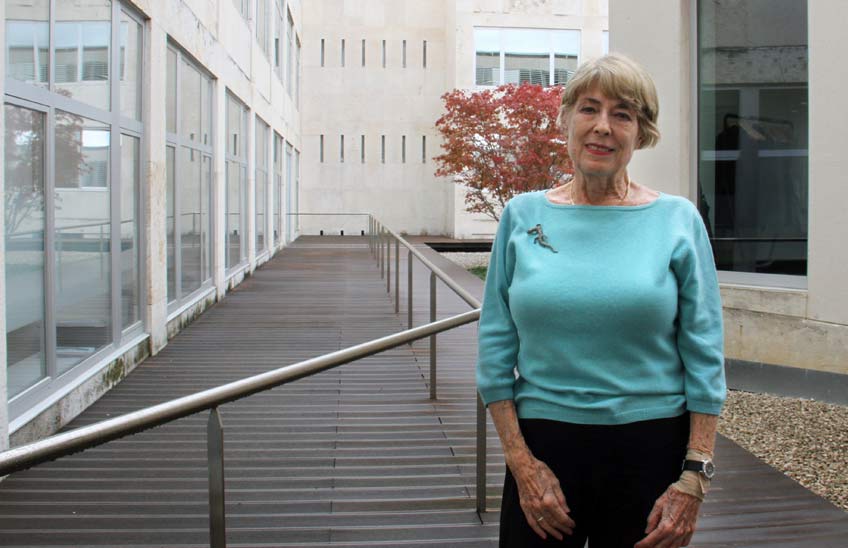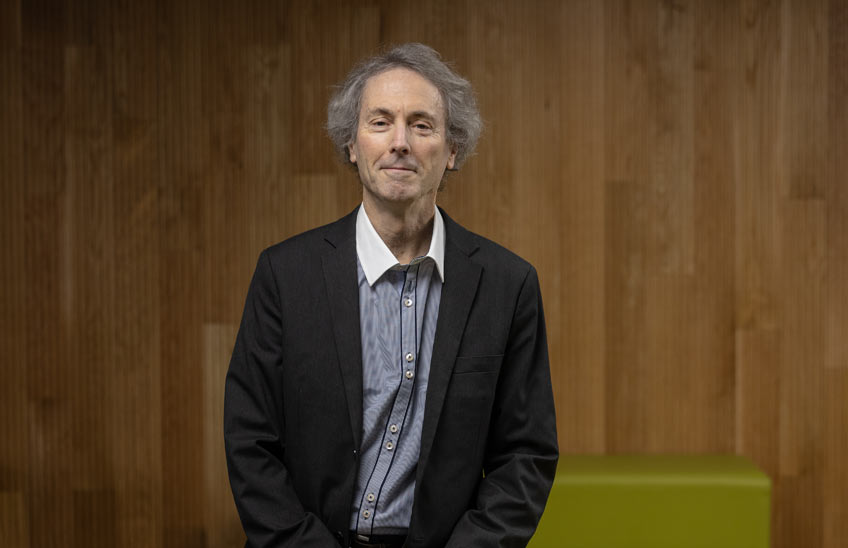"Even respecting the religion, culture and social structure of the indigenous people, colonization would end up being a failure."
María José Villaverde (Universidad Complutense de Madrid) has offered a seminar in the framework of the challenge ICS 24-25 'Orientalism and Occidentalism: crossed views'.

FotoNatalia Rouzaut<br>/María José Villaverde es experta en la ilustración francesa de la Universidad Complutense de Madrid.
12 | 11 | 2024
The great thinkers and proponents of liberalism in the 18th and 19th centuries have been acclaimed for their defense of liberties. However, at the same time, many of them have been criticized for their position on colonialism. This is the case of Alexis de Tocqueville, a 19th century French thinker and politician, who has been criticized for his stance on France's colonization of Algeria. María José Villaverde, expert of the Complutense University of Madrid, analyzed the lights and shadows of Tocqueville during her lecture ''Tocqueville, the colonization of Algeria and the 'question of the Orient'"framed in the challenge ICS 24-25 'Orientalism and Occidentalism: crossed looks' of the Institute for Culture and Society of the University of Navarra.
According to the expert, in the 19th century colonialism was already seen as an unstoppable movement. With this in mind, the proponents of civil liberties sought to make the best of this status and considered European expansionist movements as a way to bring the freedoms achieved in the West to the colonized peoples. Moreover, in the case of French thinkers, the colonization of Algeria was a way of maintaining French dominance in the Mediterranean in the face of the threat of UK imperialism.
For the researcher, this was not at odds with his defense of liberties and democracy: at the end of the 18th century, in France, intellectuals criticized the existence of slave colonies. Villaverde explained that an anti-slavery and abolitionist movement arose, of which Tocqueville was a member, and which sought "tobuild colonies in Africa that are not slave colonies and that help the African population to modernize, to democratize and, at the same time, useful to the metropolis".
Villaverde has pointed out that the politicians and thinkers of the time first looked forward to this form of democratization and then ended up seeing that it was doomed to failure. However, Tocqueville's trips to Algeria in 1841 and 1846, as French minister, made him reconsider his position. "Even respecting the religion, culture and social structure of the natives, colonization would end up being a failure," said the expert. Although Tocqueville initially advocated intermarriage with the Indians, he found that the hatred and domination caused by colonization was impossible to eliminate and revolts were inevitable.
In this way, for the researcher, it can be seen how the theory of liberal principles is difficult for governments to put into practice at internship . "As they see the obstacles, they move on from liberal principles and resort to violence," she explained. Faced with this status, Tocqueville is highly criticized since he "keeps quiet". In spite of his articles in the press and previous interventions, very critical of French colonization. Villaverde explained that this was due to the fact that he was part of the commission of the French Assembly that had to write the reports on the status in Algeria, where the brutality of the policy with indigenous people and colonists was denounced. In addition, Tocqueville intended to channel the status by presenting himself as the future governor of Algeria, "that is why there are no more denunciations". position which, in the end, he did not get to hold.




